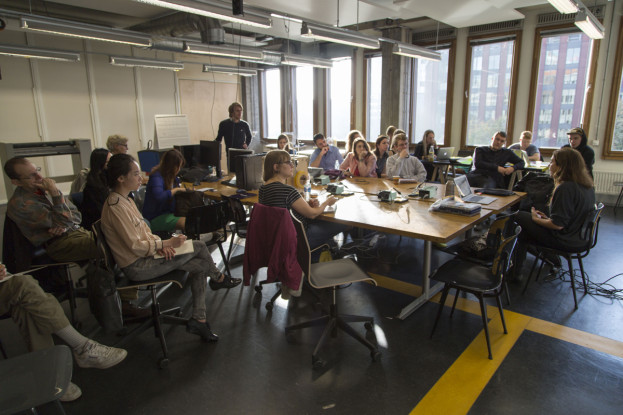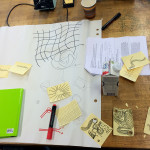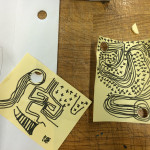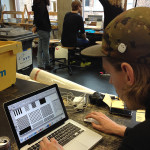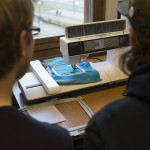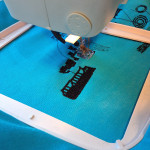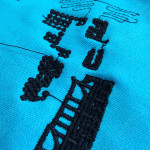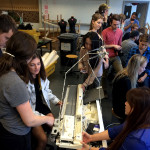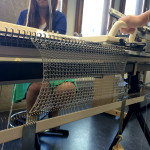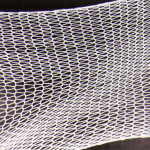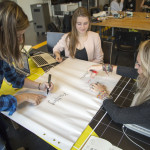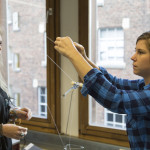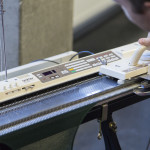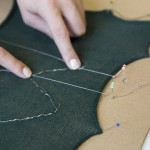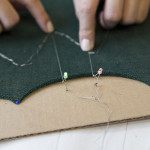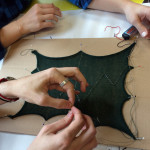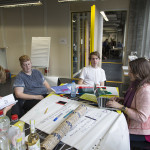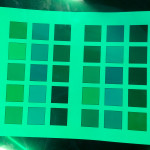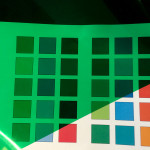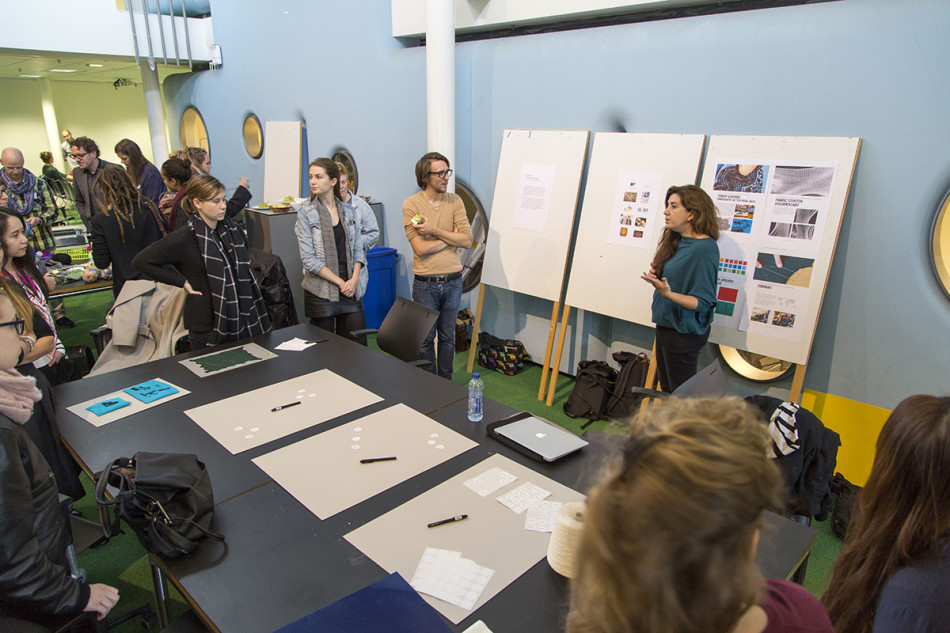This is an overview to a 6-hour workshop that took place on October 14th 2014 in Rotterdam, the Netherlands. The workshop was hosted by Jon Stam in the scope of the course entitled ‘Unravel the Code’ in the Digital Craft program at the Willem de Kooning Academy in Rotterdam. ‘Unravel the Code’ is an international exchange in which students from the Maryland Institute College of Art (MICA) in Baltimore join students from Digital Craft at WDKA in Rotterdam to reflect and speculate on personal/cultural implications of technology and its relation to the body.
Workshop Synopsis
All crafted matter stores data. Zooming in, one can see the hard-coded data of the crafting process itself. Zooming out, one can read data connected to its social and cultural context. Textiles is an example craft that holds many relations to computer processes–from the binary principle to punch cards, textile technologies have informed data storage. With the advent of electronically conductive fibres this peculiar pairing becomes even closer. It is now possible to concoct and construct textile patterns that also facilitate electronic functions. But what functions could these new textiles enable? And, perhaps more importantly to its maker–how could these textiles be made?
This workshop explores what data storage would be like if qualities of craftsmanship were applied. It challenges a group of students to bind one textile technique (such as screen printing, knitting and embroidery) with one encoding/decoding technique (optical, mechanical, and electrical). Each group will zoom in on possible ways these two distinct processes could interact at a material level. By means of an experimental material sample or sketch (working or conceptual) a speculative storage media will arise. The second layer of the workshop asks each group to contextualise what kind of information could be transmitted and what its meaning would be. By means of one photograph/or 10 second film, this new storage media will be placed in an everyday context–not as a product, but as an open-ended situation.
Group 1 | Mechanical + Embroidery
Ran Zheng, Amber Eve Anderson, Harrison Tyler, Thom Trouborst
Embroidering structure and grain into the surface of a fabric that could be felt and traced by fingers in the pocket.
Group 2 | Mechanical + Knitting
Amanda Metcalf, Zhujuan Zeng, Winnie Kuo, Michelle Lievart, Christopher Noort
Storing data on a piece of knitted fabric by means of physical distortion.
Group 3 | Electrical + Knitting
Joeke van der Veen, Megan Mills, Alex Jacque, Lizet van der Knaap
Speculating about an automated knitting machine that can create complex visualisations by translating live data first into graphs then into electric signals.
Group 4 | Optical + Screen printing
Elizabeth Galbut, Will Schorre, Ciska Swaak, Robin Hendriks
Looking into possibilities for storing data that can be decoded by various users in different ways.
Discussion at Open Labs. TU/e Wearable Senses BALTAN Laboratories day
On the following day, the discussion continued at the Open Labs organised by Baltan Laboratories. The event took place in the framework of the ArcInTex Network Conference at the Eindhoven University of Technology. Industrial partners, PhD students, artists and other people interested in smart textiles for wearables, interior and architecture met each other, demonstrated their work, and shared knowledge by actively working together.
